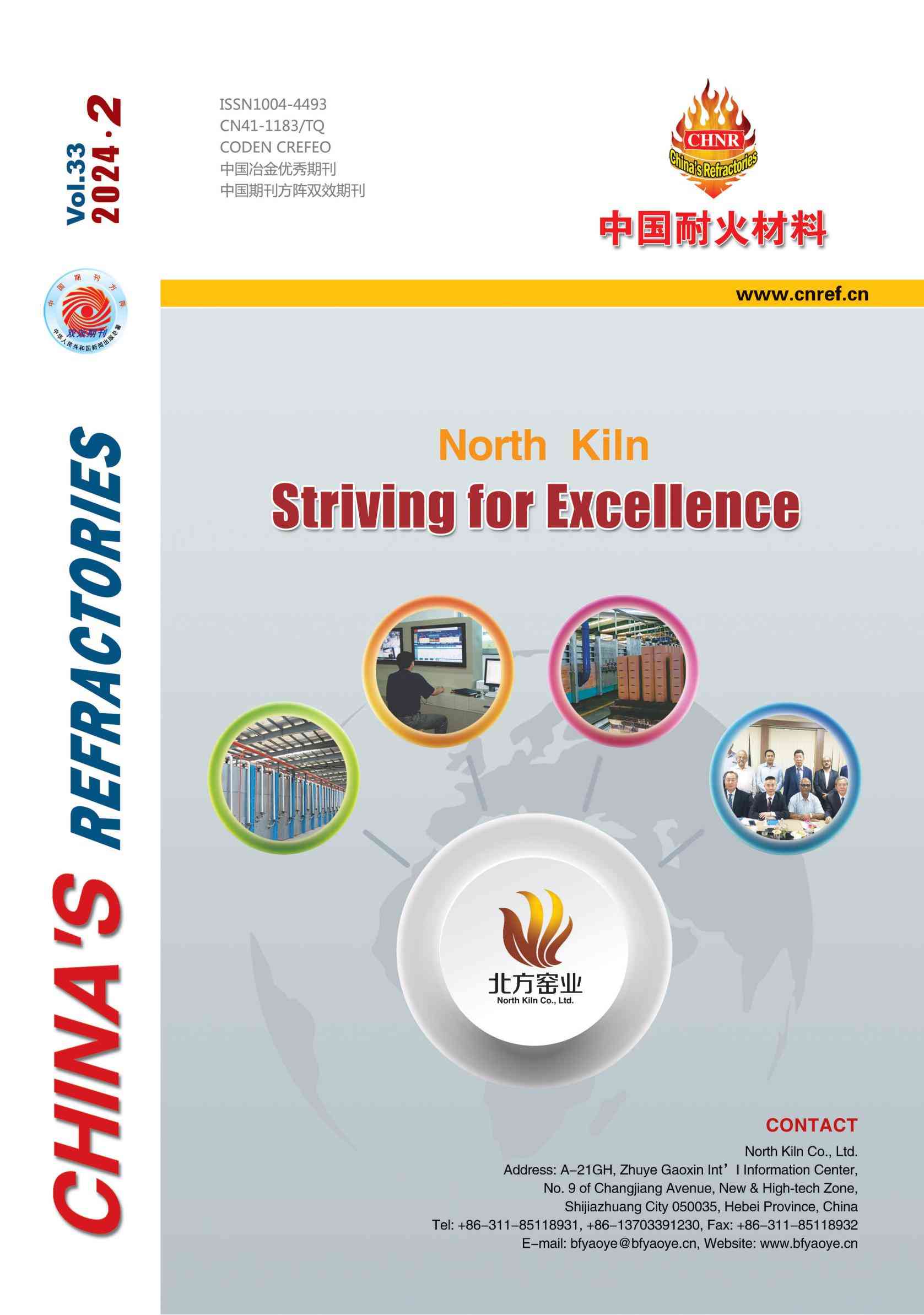
- Effect of Slag Basicity on Alumina Dissolution and Diffusivity: A High-temperature Confocal Laser Scanning Microscopy Study
- 作者:Burhanuddin* , Harald HARMUTH
- 作者机构: Montanuniversität Leoben, Leoben 8700, Austria
- 分类号:
- 卷号:
- 期号 : 2024 年, 第2期
- 页码:27 - 34
Alumina is one of the crucial and extensively utilized refractory components. As the refractory wear due to dissolution at elevated temperatures during operation is a major threat to refractory lifespan, quantifying dissolution is important for developing cost-effective and resource-efficient refractories. This study investigated the dissolution of alumina particles in two silicate and one calcium aluminate slags at 1 450, 1 500, and 1 550 °C using high-temperature confocal laser scanning microscopy (HT-CLSM). Dissolution was quantified in terms of diffusivity, with all influencing factors, including Stefan flow and bath movement, incorporated into the determination process. The trends observed in total dissolution time and diffusivity in three slags at three experimental temperatures could not be explained solely on the basis of slag basicity. Two parameters, considering the influencing factors, were introduced to explain these trends. Furthermore, the linear trend observed in Arrhenius plots of diffusivities supports the diffusivity results. Additionally, good agreement between the diffusivities of alumina in one silicate slag obtained via CLSM and rotating finger test investigations verified the reliability of the results.
- How Marie Sklodowska-Curie Doctoral Ne [138]
- Application of Thermodynamic Database [127]
- Novel Brick Technology for Carbon Redu [112]
- Investigation of Refractory Bricks and [94]
- Effect of Slag Basicity on Alumina Dis [104]
- The Role of the Size Effect on the Dry [54]
- Study on Chrome-free Purging Plugs for [41]